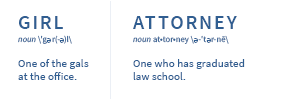From The Cut authored by Lisa Miller:
“When I was about 30, I was hired to be an editor at The Wall Street Journal. There was no good reason for this. I was a pretty good writer, and I knew the rules of grammar and was in general interested in a lot of stuff. But nothing on my résumé would have pointed in the direction of a coveted job at the No. 2 daily paper in the land; I’m guessing there were lots of people more qualified in line for (and deserving of) that job.
But the person who hired me — ten years older, tough, funny, brilliant — saw something in me. Thank God. She could see that I was smart. She probably sensed that I had (have) a tolerance, and even an appetite, for punishing amounts of work. She probably liked that I wasn’t an apple-shiner. (She wasn’t an apple-shiner.)
I fell for her completely. How could I not? My boss was wicked. Sharp. Hilarious. Quick-witted. Irreverent. Also: kind, responsible, ethical, serious. Direct. A meritocrat. She loved people who made her laugh or think. She followed rules carefully and broke them knowingly. She loved wielding her power.
She wasn’t afraid. We worked in a newsroom, at desks arrayed like a kindergarten classroom, so as I edited stories at what seemed to me like a lightning pace, I could watch her transact business. She was intimidating — not a person to piss off — a fact that everyone at the company knew. In an organization full of swaggering men, she didn’t holler. She never pulled punches. She just told you what she thought of your boneheaded mistake and then moved on.
I admired her. I wanted to please her. They say that younger women evaluate their female elders both in terms of their achievements at work and the way they manage their lives at home, and I suppose the fact that my boss was also a mother and a wife (who left the office promptly at 6 p.m. no matter what little fires were erupting on deadline) appealed to me. But that wasn’t the first thing. The first thing was her relentlessness, her comfort with her own hunger, and the good humor with which she wore it all. It was she, more than anyone I’d ever met, who gave me the gift of a vision of a future in which I might be sustained by work, comfortable (if often extremely frustrated) competing with men, in an office full of impatient, profane, curious, demanding, creative people whose company I loved. Love.”


